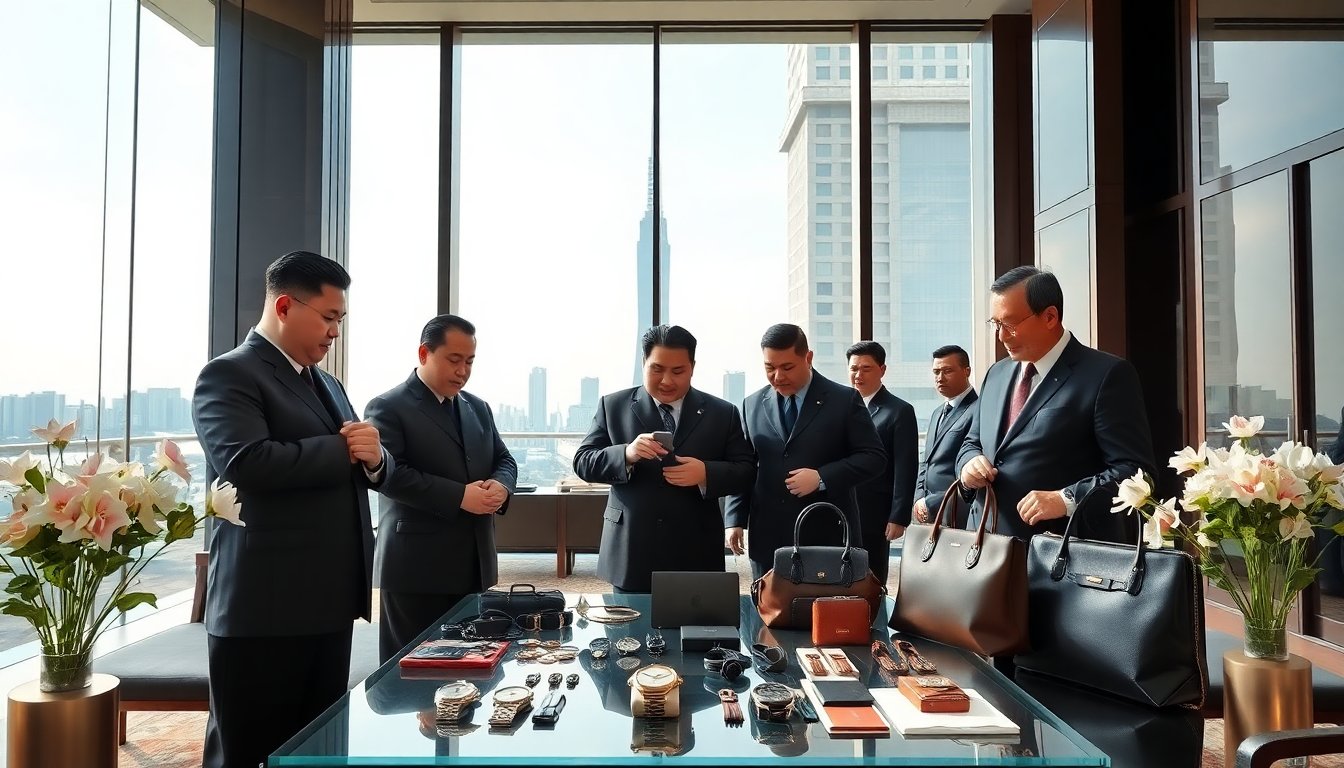Table of Contents
In a striking display of contradictions, North Korean leaders have been seen flaunting high-end European luxury brands during their recent trip to Beijing. This occurs despite the regime’s longstanding anti-capitalist stance. Such phenomenon raises questions about the relationship between ideology and consumerism in a country known for its stringent views on wealth and luxury.
The Luxury Showcase
During their visit, North Korean officials showcased several prestigious brands, including a Swiss timepiece priced at US$14,100, which has become a familiar accessory for Kim Jong-un. His frequent appearances with this watch, particularly during high-profile events like his September 2023 trip to Russia, highlight a complex narrative where elite consumerism is both celebrated and condemned.
Moreover, Kim’s sister, Kim Yo-jong, was spotted carrying a black Lady Dior handbag crafted from lambskin, valued at over US$7,500. This specific model is not new to her; she previously carried it during her brother’s visit to Russia, where other members of the delegation were also seen with luxury accessories. Such displays seem to contradict the regime’s rhetoric that denounces luxury goods as symbols of “bourgeois culture.”
Contradictions in Ideology and Practice
The North Korean government has a history of harshly punishing its citizens for possessing luxury items, framing these goods as representations of the very capitalist excesses they seek to criticize. This ideological stance is built upon the belief that such items are antithetical to the values of the state, which positions itself as a champion of the proletariat. Yet, the leadership’s personal embrace of these luxuries suggests a divergence between state ideology and personal practice.
This duality exemplifies the contradictions prevalent within the North Korean regime and underscores a broader commentary on the nature of power and privilege. While ordinary citizens face severe repercussions for even minor infractions related to luxury possessions, the elite—those in positions of authority—appear to operate under a different set of rules. This disparity raises critical questions about the true nature of power dynamics within North Korea.
The Global Perspective
In a global context, the presence of North Korean leaders adorned with luxury brands can also be seen as a strategic move. It serves to project an image of strength and affluence, possibly aimed at influencing both domestic and international perceptions. By showcasing a connection to high-end brands, the regime may seek to bolster its image, presenting itself as modern and affluent, despite its oppressive policies.
The stark contrast between the government’s rhetoric and its elite’s behavior may serve to reinforce the regime’s grip on power. It creates an environment where loyalty is rewarded with privilege, further entrenching the disparity between the ruling class and the general populace. This dynamic illustrates how consumerism can be weaponized, reflecting both personal status and the ideological contradictions inherent in the North Korean system.


